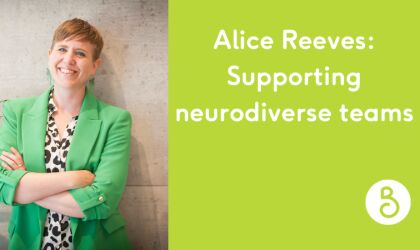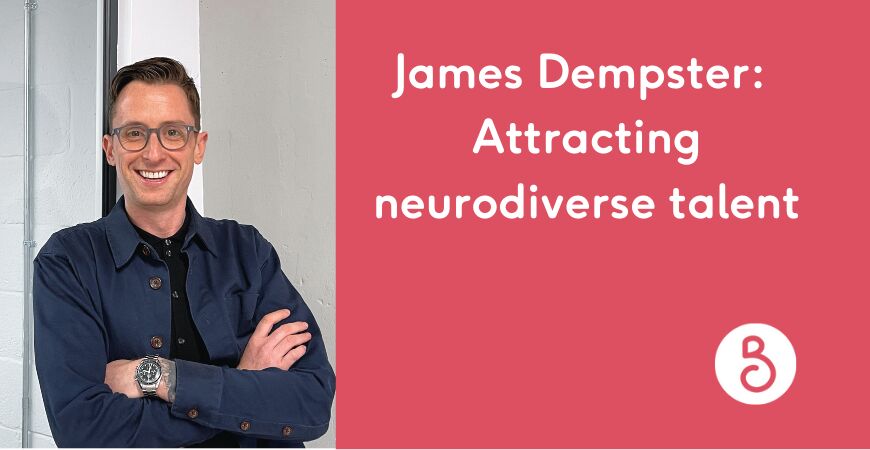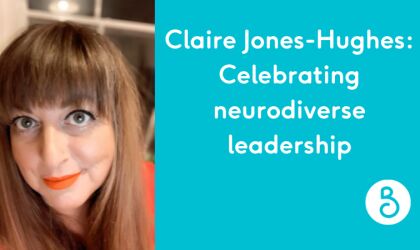

Thu 21 / 07 / 22
Celebrating neurodiversity with James Dempster – attracting neurodiverse talent
By Hannah Jackson of Brighton Chamber
About 15-20% of the world’s population is neurodivergent. When we talk about neurodiversity or being neurodivergent, we’re referring to the cognitive differences in our brains - the way we perceive and process the world around us. This might include the autism spectrum, ADHD, ADD, dyslexia, dyspraxia.
And having diverse teams, talent and leaders has proven to lead to more productivity, better performance – and ultimately, better business. So how do you make sure you’re attracting neurodiverse people?
We spoke to three Chamber members, who are neurodivergent, about running a business. They shared their stories, what they’ve learned, tips for better working relationships – how they celebrate neurodiversity in their own business, and how you can do the same.
We’ll be sharing each of their stories and perspectives individually. First up, we spoke to James Dempster, MD of Fox&Bear.
On the initial diagnosis
I’m very conscious that I can’t, and shouldn’t, speak for the whole community, so this is my take on celebrating neurodiversity in the workplace.
When I was diagnosed with autism as an adult it was a life-changing moment. I suddenly understood why things made sense to me but not to everyone else. In some situations, I just gave up and thought I was obviously being difficult or not communicating effectively.
Friends and family have mostly been amazing, but two things that really annoy me are “we’re all on the spectrum” - only 1% of the UK is (National Autistic Society, 2022) - and “you can’t be, you love speaking.”
This was one of the lightbulb moments of my diagnosis. I love public speaking, but then find it incredibly difficult to network and make small talk afterwards. As part of my ‘Dealing with a diagnosis’ session, Dr Gallagher explained to me that autistic people have an internal battery. This battery gets drained when there are too many social interactions at once and gets replenished when time is spent alone. My solution? Pay attention to how I’m feeling and find a quiet space to read. Easy!
The negatives I have noticed include:
- Lack of patience in long meetings.
- Frustration when someone doesn’t understand my point.
- Awkward initial conversations.
- Varying my tone of voice to suit the situation - I am what I am and I find it difficult to be something else.
- I am TERRIBLE at “we’ll see” and “soon”. Please tell me “within the next three months”, even if you have to give a worst case. Also, “I’m five minutes away”. If you turn up in 20 minutes, be ready for questions and an annoyed face.
The benefits of working with someone like me:
- Persistence. When I get a thought about work, and I know that something will improve the business or help people, I won’t let it go.
- Getting stuff done. Because I’m not afraid to say the difficult things or to add unnecessary ‘fluff’, meetings with me can be 50% shorter than the expected. No one wants to sit in a meeting room for the sake of it, so I enjoy closing meetings down as soon as possible.
Attracting neurodiverse talent
So, what can you do to attract neurodiverse people? For me it’s all about open conversations. If prospective employees can see that you have an authentic, open approach to neurodiversity, they are more likely to feel favourably about your business.
There is too much negativity at the moment (rightly so, the news is awful), but one positive thing about the 2020s is the younger generation’s openness to having challenging conversations. There is work to be done though as 1 in 10 autistic workers do not reveal their diagnosis to colleagues (Auticon, 2022). This needs to increase.
I want to help younger people feel comfortable to celebrate their neurodiversity so if you or someone you know is struggling with a diagnosis, please send them my way!
James Dempster is MD of Fox&Bear.
As part of our series celebrating neurodiversity in the workplace, we spoke to Alice Reeves, Co-founder of The Joyful, and Claire Jones-Hughes Partner at Contentim. Read their stories, insights and advice below:
If you want to contribute to the Chamber blog, contact us on hannah@brightonchamber.co.uk



